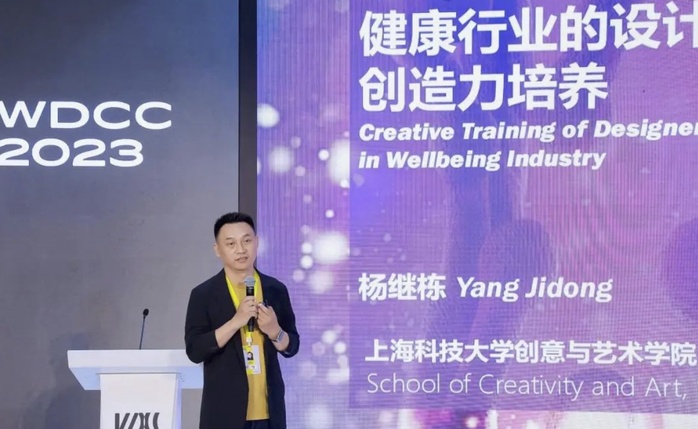The Design for Health & Wellbeing Forum, one of the forums of the World Design Cities Conference 2023 (WDCC), an international design conference hosted by Shanghai, with its goal to be the “City of Design”, was convened on September 29 at Shanghai Huangpu Riverside. This forum was organized by SCA, co-organized by Shanghai Industrial Design Association (SIDA), and supported by BME. Leading experts from design, medicine, artificial intelligence, and other different fields gathered at the site, shared contents with three major themes including “innovation in future health”, “digital experience of urban health” and “innovation ecosystem of urban health”, to explore a new path for design innovation.

The forum was chaired by Hu Jiang, Vice Dean of SCA. In his opening speech, he pointed out the importance of combining “design innovation” together with “urban health”, to build Shanghai as an international digital city. Officials from Shanghai government and leaders from SIDA delivered addresses at the opening of this Design for Health & Wellbeing Forum. Several professors in SCA shared their thoughts about innovation in industrial design and healthcare.
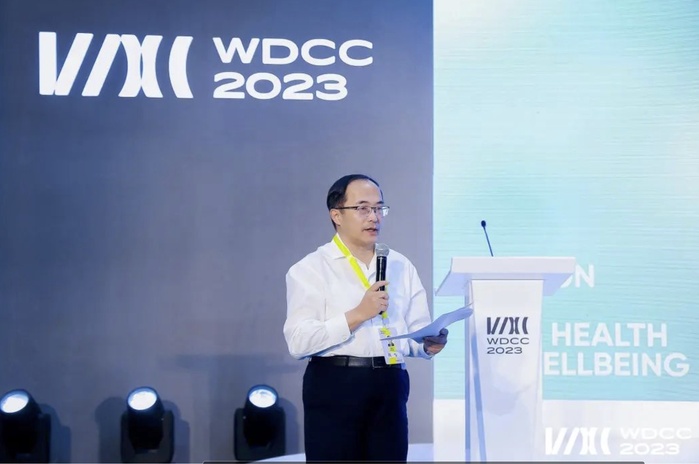
Wang Shouzhi, Deputy Dean of SCA, delivered a keynote speech entitled “Diversified experience of innovative talents in the digital age”. “Facing the rapid development of artificial intelligence, I believe that there will be more and more job opportunities for those who have creativity such as engineers, doctors, lawyers, teachers, scientists and journalists. One of the best teaching methods in design education for students is to use a cross-disciplinary and diversified way, combining knowledge, concepts and methods from multiple fields or subject areas to promote students’ critical thinking and problem solving skills.”
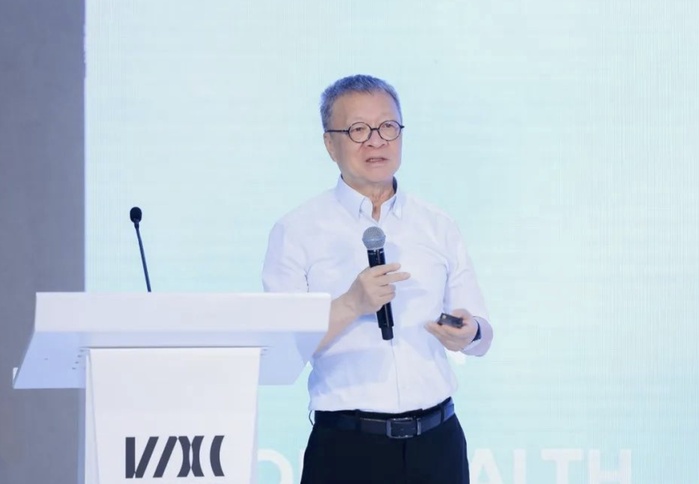
Hu Peng, Executive Dean of BME, proposed his idea in the speech entitled “Development of medical treatment and healthcare industry in the digital age”. “The direction in which the development of medical treatment advance has lots of connections with design. In the future, patients will gradually accept a new medical service mode which changes from passive to active in medical treatment, and the change will give birth to meta-medical treatment. New technology and design are needed for its underlying system, operating system, rendering engine or scenario applications. I believe the combination of biomedical engineering and design will help to build the ecosystem of meta-medical treatment.”
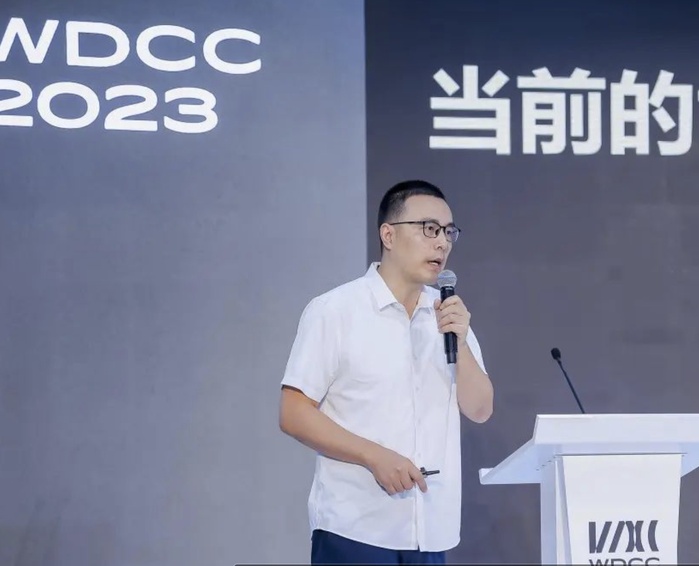
Yang Hua, Teaching Professor in SCA, introduced some diversified interdisciplinary design projects from her perspective of interdisciplinary education in design. “I would like to guide students to think about more creative works using cross-schools, cross-majors, and cross-labs collaboration”. Yang Hua emphasized the importance of expressing methods during design process. “The cross-border collaboration between scientists and artists can show the designers’ thinking process with more involvement. These methods of expression are useful for teaching as well.”
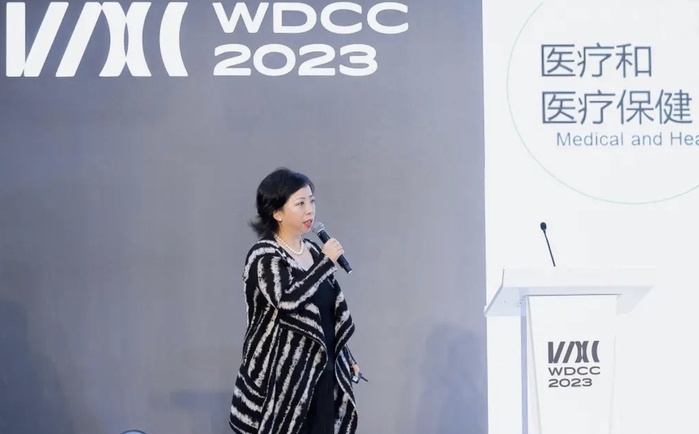
Zhang Han, Associate Professor in BME talked about his research idea on human brain and intelligent imaging. “I believe that the imaging technology for obtaining a clear image of a child’s brain together with a comfortable experience for the child while undergoing brain imaging are good reflections of human-oriented creation and art. I plan to build a kid-friendly playground to improve children’s experience during the process of data collection for brain imaging, and reduce their fear of experiments. Through exploring the combination of creativity and design, I hope to build an integrated ecosystem of biomedical engineering and design.”
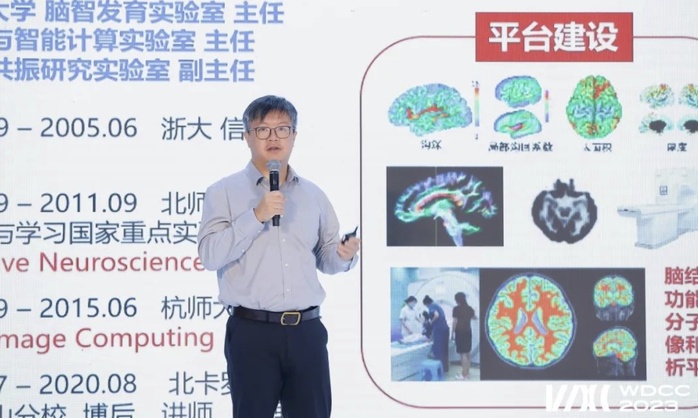
Yang Jidong, Associate Teaching Professor in SCA , Vice President of SIDA, also the chief planner of this forum, shared his speech. “The digital era is full of four characteristics—diversification, integration, personalization and interaction. One of the goals of this forum is to explore the importance of interdisciplinary intersection in forming a perfect coalition of digitalization, creativity and clinical health. Designers are utilizing 80% of the existing knowledge system to carry out 20% of the wisdom innovation. They should be the driving force of the future health and development of mankind by linking all the external resources, and cultivating people’s ability for insight, understanding, and thinking.”
